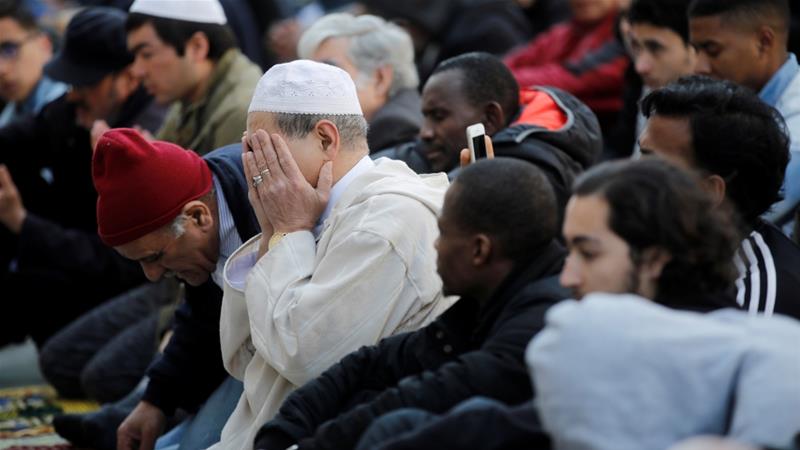Global Issues
Witch-hunt Against Muslims In France -By Lanna Hollo

Last week, in the French town of Bayonne, an 84-year-old man attempted to set fire to a mosque. When two passersby tried to stop him, he shot and wounded them both, before he was eventually arrested. That same day in Paris, President Emmanuel Macron was meeting Muslim leaders at the Elysee Palace – not to discuss threats against their community, but to urge them to step up efforts to combat religious extremism.
The day’s events were just part of a vicious cycle of recrimination and demonisation that has erupted in France since the stabbing in Paris on October 3 of four policemen by a colleague who had converted to Islam.
Internationally, the incident attracted little attention, especially when compared with the mass killings in Paris in November 2015 and Nice in July 2016.
But in France, it has sparked a deeply concerning escalation of Islamophobia – one that is being fuelled at least in part by the words and actions of Macron and other political leaders.
In his speech at a ceremony honouring the four slain policemen, Macron called for “a society of vigilance” to act as a barrier against the “Islamist Hydra”. He also called on the nation to rise up against “this underground Islamism that corrupts the children of France”, by identifying “the little nothings that become terrible tragedies.” These are the fight of the nation “at school, at work, in the areas of daily life”.
Three days later, a local right-wing politician in the city of Dijon turned on a Muslim mother who was wearing a headscarf during an elementary school visit to her local regional council. He asked the council’s president to order the mother to remove the scarf or leave the assembly, saying her presence was unacceptable given the police killings.
That, in turn, thrust the fraught question of what Muslim women wear back into the public spotlight, all against the emotionally-charged background of the stabbings. A slew of television and radio debates followed – none of which included any headscarf-wearing women. On the same day as the attack on the mosque in Bayonne, the French Senate began considering a bill that would ban women from wearing headscarves while accompanying school trips. In 2011, France banned the wearing of full-face veils in public, while public officials including teachers are not allowed to wear headscarves
Macron has said that no one should be stigmatised for wearing the headscarf or veil. Yet his government’s efforts to combat extremist violence increasingly look like a cultural assault on Islamic religious practices. France’s interior minister, in a speech to the National Assembly, recently listed conservative religious behaviour, including “regular and ostentatious” praying, growing a beard and declining to exchange kisses with a woman on greeting, as potential signs of radicalisation. A public university outside Paris, Cergy Pontoise, subsequently asked its staff to report students who might be displaying a similar list of indicators of orthodox practice – later apologising following an outcry.
France already has an aggressive regime of measures that overwhelmingly target Muslims, first introduced under the state of emergency that followed the November 2015 Paris attacks, and then passed into law two years ago. Individuals may be assigned to residence, subject to restrictions on their freedom of movement, subject to house searches or dismissed from employment, based largely on secret intelligence information without due process. Speech that is judged to be an “apology for terrorism” can also result in prosecution.
Against this background, individuals are reporting being called into police stations after anonymous tip-offs expressing concern about their behaviour. One woman who converted to Islam published an account of such an interview session on her Facebook account on October 17, which included questions about her mosque, her husband, her family and the way she dressed.
“It is truly humiliating to find oneself alone interrogated by two men, obliged to justify oneself and one’s choices,” she wrote.
Where does this end? Discrimination against minority communities is not only unlawful, but it is also counterproductive for two reasons. First, repression and discriminatory treatment invariably breed resentment and reaction. And second, relations with affected communities, who are the best allies of the police in the effort to maintain public safety, are damaged. A recent article in Le Monde, for example,noted that of the 59 “terrorist” attacks that the Ministry of Interior claims have been “prevented” on French territory in the last six years, 58 have relied on human intelligence sources.
France needs to regain the battered confidence of its Muslim citizens. And it needs to start by ending this witch-hunt.









